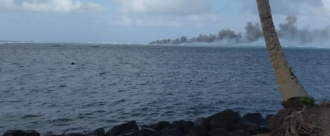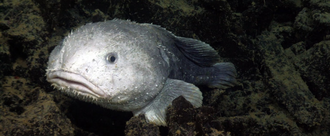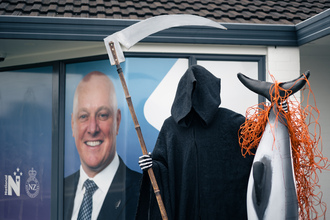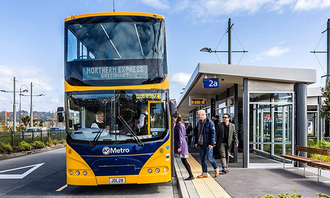-
Save Our Water Conservation OrdersTe Waikoropupū Springs have some of the clearest water ever measured on earth. In 2023, the Springs were protected by a Water Conservation Order (WCO). The WCO gives a special cloak of protection that councils must abide by when considering resource consents. In late 2025, the Government plans to replace the Resource Management Act (RMA). Federated Farmers is asking the Minister to remove the Te Waikoropupū Springs WCO and all WCOs from the future resource management system. If this were to happen, Te Waikoropupū Springs would be at significant risk from pollution. Te Waikoropupū Springs would also lose the protection the WCO gives if resource consents are sought for mining at Sams Creek. All other precious waterways which are protected by WCOs, would also be similarly at risk. It’s time to draw the line and protect our most precious and endangered waterways. Sign our urgent petition to protect all Water Conservation Orders! Water conservation orders | Ministry for the Environment (Includes Te Waikoropupū Springs) Maps: Te Waikoropupū Springs Short video includes: Sams Creek and Te Waikoropupū Springs https://www.youtube.com/watch?v=mgxfTNztNVk3,640 of 4,000 SignaturesCreated by Kevin Moran
-
Protect What’s Left: Expand Marine Reserves in NZ“If we want to protect the future of our oceans, we need action now not when it’s too late.” We’re a group of young people from Ocean Youth, asking DOC to be a kaitiaki (guardian) for Papatūānuku and protect what can’t protect itself. Right now, only 0.4% of Aotearoa’s ocean are fully protected that is one of the lowest rates in the whole world! Every year, more marine species are threatened by overfishing, pollution, and climate change. Our beautiful coastal waters, home to taonga like dolphins, crayfish, pāua and coral, are under serious risk. If we don’t act now, we risk losing what makes NZ’s oceans so special. We care about this because the ocean is not just water it’s life. It gives us food, oxygen, joy, and connection. It’s part of our identity as New Zealanders. Yet, we’re not doing enough to protect it. The effects of the problem: • Fish populations are shrinking • Coral and kelp habitats are disappearing • Coastal ecosystems are getting polluted • Future generations might not experience the ocean like we have Why now? Because climate change is speeding things up, and once species are gone, they’re gone. We still have time but we’ll have to act fast. The better future we’re fighting for: A future where our oceans are thriving. Where marine life is safe. Where we can swim, fish, and dive in clean, living waters. A future where people, planet, and Papatūānuku are in balance. This campaign is our way of standing together as ocean lovers, and as people who believe we still have a chance to protect what matters. We might be young, but our voices are strong and together, we can change our oceans for the better. Links • Global Biodiversity Framework54 of 100 SignaturesCreated by Nicole Jakimiuk
-
Create new global ocean sanctuariesTime is running out for our blue planet. Climate change, pollution and overfishing are pushing the oceans to the brink of collapse. Food security and the livelihoods of billions of people hang in the balance. But there is hope. Scientists tell us that ocean sanctuaries can provide the solution - spaces where marine life and ecosystems can recover and thrive, restoring the health of the ocean. After years of campaigning, the first-ever Global Ocean Treaty was agreed upon. Now, governments need to sign it into law and make protected areas a reality at sea. World leaders must act urgently to create these sanctuaries and secure the future of the oceans and all life on Earth. Add your name to call on the Minister for Foreign Affairs, Winston Peters, to create new global ocean sanctuaries and protect our blue planet.17,476 of 20,000 SignaturesCreated by Greenpeace Aotearoa

-
Keep GE technology in the lab!At the time of writing the Luxon Government is pushing the Gene Technology Bill through Parliament. This bill proposes to deregulate the use of GMOs in Aotearoa. Gene technology and experimentation involves changing, controlling and manipulating the genes of living beings. These can be plants and animals, and invisible bacteria and soil microbes. The objective is to encourage these genes to behave in specific ways, usually for commercial purposes. It has been used in closed lab conditions for the last three decades. New Zealand’s strict regulations have prevented the contamination of nature and food and our GE Free producer status is of great economic value to food producers. Yet around the world GE technology is undermining food and seed sovereignty. The release of gene edited crops or organisms outside the lab carries significant environmental risks to Aotearoa. Potential harms include risks to our unique ecosystems and biodiversity and cultural heritage. GE tech threatens the livelihoods and brand of organic and non-GE growers who would face the threat of cross-contamination. We run a huge risk of contaminating both the natural biodiversity and our actual food supply network. Beyond the Bill risks New Zealand’s global brand of being a clean and green country, which we all depend on in some way. GE tech is a false solution that companies would use to avoid accountability for good environmental stewardship. While some industries may gain financially from free use of GE tech, there is a lot at stake for other industries. We call on the Government and all parties in Parliament to tighten regulation of genetic editing by not releasing GMOs into our communities. We encourage using the precautionary principle and not risk what we already have. We should maintain the advantage of high control, much like the bio-control approach we use for our borders to protect agriculture industry and native wildlife. We also recommend enforcing ‘traceability requirements’ to track GE products in the food supply. This would maintain transparency for everyone, and safeguard New Zealand’s ‘clean, green reputation. Sign our petition to support a safe GE free future! Please also support: • The Organic NZ campaign for a GE-free future! • Papawhakaritorito Trust307 of 400 SignaturesCreated by Mardi Porter
-
Help small businesses on the way to a sustainable energy future!Auckland Council can reduce the use of fossil fuels for energy. They can not only take action to make hospitals, schools, and buildings more sustainable but also support small businesses to make a transition to sustainable energy and provide assistance in the process. The Earth is reaching closer and closer to the tipping point. A lot of that is due to climate change; which is caused by greenhouse gas emissions. The main cause of greenhouse gas emissions is from energy. Energy emissions happen from the farm where they are collected, to the way they are used in homes. Promoting sustainable, emission-free energy would have a positive effect on the Earth. The small businesses would also benefit from cheaper power, and having the cost covered to persuade more people to switch. Auckland Council should fund the small businesses $400 for the first month of switching to sustainable energy. Auckland Council would run this program, under which a business owner could call their office and request funding to switch to sustainable energy. The $400 would cover most of the first month of sustainable electricity. Our goal is that with this new incentive, small business owners would be inclined to support sustainable energy because of the benefit to their business. 1. The small businesses would benefit from transitioning to sustainable energy. Sustainable energy is more inexpensive than fossil-fueled energy, which would benefit small businesses that need to use a lot of power (eg. heating and chilling food). 2. Having more businesses switch to sustainable energy would also reduce emissions in New Zealand. Currently, over 40% of New Zealand's greenhouse gas emissions come from activities such as driving, generating electricity, and manufacturing. Encouraging businesses to use sustainable energy could reduce that number, reducing New Zealand's overall emissions. The effects that could have on our environment are really important. Reduced emissions could slow global warming, reduce air pollution, and keep New Zealand on track in our Sustainable Development Goals. Global warming is an urgent issue, we need to take action to stop it. It's caused by greenhouse gases in the atmosphere trapping heat from the sun. Even though it may seem small, every second more glaciers begin melting, and sea levels rise which causes coastal cities; like Auckland to flood. Slowing global warming is a large thing that could be affected by more businesses transitioning to sustainable energy. Air pollution is caused by emissions of pollutants into the air. These pollutants are fine particles like smoke that can travel into the body and affect our health. Air pollution causes health problems such as asthma, heart disease, and stroke. Air pollution causes around 6.7 million premature deaths each year. That's 6.7 million lives gone and millions more devastated by the loss. Preventing emissions from businesses is a step in stopping this issue, which is an action we should all take. So, take action for small businesses using sustainable energy. It helps not only the environment and businesses but also you. Who knows who could be affected by the effects of our emissions next?183 of 200 SignaturesCreated by Amy Gao
-
Reverse the decision to open protected areas of the Hauraki Gulf to commercial fishingIn the latest salvo of Luxon’s War On Nature, commercial fishing will be allowed in new ‘highly protected’ areas in the Hauraki Gulf marine park after a last-minute U-turn by ministers. This is a huge broken promise to Aucklanders and a damaging blow to the Tīkapa Moana Hauraki Gulf Marine Park, which is on the brink of ecological collapse. Overfishing, habitat loss and pollution have already led to a 57% decline in key fish populations, a 67% decline in seabirds, and a 97% decline in whales and dolphins in the Hauraki Gulf. Scallop and crayfish populations are functionally extinct in some areas. The creation of new marine protected areas (MPAs) in the Hauraki Gulf is critical to protecting and restoring the ecological health of this precious area while also ensuring that a family can go out and catch a feed. The Hauraki Gulf Marine Protection Bill was going to do that but the future of Hauraki Gulf is now even more at risk because the government has bowed to the fishing industry and decided to ammend the bill to allow commercial fishing in areas that are designed to provide a critical safe haven for marine life to recover. Sign this petition now to call on the Luxon Government to reverse the last-minute decision to amend the Hauraki Gulf Marine Protection Bill Read more • Campaigners slam ‘unconscionable’ last-minute permit for commercial fishing in Hauraki Gulf sanctuary • Govt wants new protection areas in Hauraki Gulf while allowing some fishing • Hauraki Gulf Tīkapa Moana bill amendments a slap in the face for mana whenua and advocate groups • Iwi leaders slam Potaka‘s ’weak’ justification for continued commercial fishing of Hauraki protected areas6,885 of 7,000 SignaturesCreated by Juan Parada

-
Trees for free!This campaign urges the government to prioritise a greener future by revising current policies and redirecting funds towards sustainable initiatives that benefit everyone. By securing dedicated funding for tree planting and passing legislation to support eco-friendly infrastructure, New Zealand can significantly reduce its carbon emissions and stay true to its carbon-zero commitments under the 2016 Paris Agreement. Instead of investing in projects that offer little long-term value—such as controversial road expansions or excessive spending on defence upgrades—resources could be better allocated towards initiatives that protect the environment and our communities for future generations. To offset household electricity for a year, we would each need to plant approximately five trees. With this information, it would be best to plant more than 10, 000 trees as a basis number. By planting a sufficient number of trees in New Zealand, we can offset our carbon footprint. This change can create an enormously positive impact on New Zealand's ecosystem. By supporting this cause, we can offset our carbon footprint and work towards achieving net-zero emissions. This approach will allow us to maintain our thriving agricultural sector while contributing to environmental sustainability. The growth of flora in our ecosystem encourages native species to thrive in better conditions. We need to begin a program that allows normal citizens of New Zealand to find a tree to plant locally. This needs to be free of cost, and easily accessible for citizens around the country. By letting people receive trees to plant, free of cost, we can obtain our billion trees program goal by 2028. This is a great way to grow trees voluntarily, trees for free. Yina Zheng, Daniel Dickson, Hyungwoo Kim, the Trees for Free campaign team145 of 200 SignaturesCreated by Yina Zheng
-
NZ: Urgently send an oil cleanup team to Sāmoa to clean up Manawanui spillSāmoa's Marine Pollution Advisory Committee (MPAC) has confirmed that the HMNZS Manawanui is leaking “residual oil” from three locations of the stricken naval ship. Chief of NZ Navy Rear Admiral Garin Golding says that "There is obviously fuel coming out of the Manawanui" but currently has no plans to send in their 30-person cleanup team, which remains on standby. The ship was carrying 950 tonnes of light diesel oil. Anger and frustration is growing in Sāmoa, with locals fearing for their livelihoods and food sources. Village high chief Tuia Pepae Pua says local fishermen are already selling fish coated in oil, with locals reporting sickness after eating contaminated fish. Samoan local Jay Ah Schuster says “I know we get a lot of assistance from New Zealand and that, but that doesn’t mean you can’t say sorry for killing our corals, killing our fish, endangering our marine life."254 of 300 SignaturesCreated by 350 Aotearoa
-
Save the blobfish!We are standing at a critical moment in time when the deep sea is under increasing threat from human activities. The blobfish is a prime example of a species on the brink of extinction, not because of natural causes, but due to destructive practices like deep-sea trawling. It's essential to act now because if the blobfish, which was only recently discovered, is already at risk, other species we don't even know about may already be disappearing. The damage caused by deep-sea trawling is devastating and widespread, affecting entire ecosystems that take decades, if not centuries, to recover. Why do we need to join together now in a campaign for change? • Protect Biodiversity: The blobfish is just one species among many that are suffering due to our lack of protective measures for deep-sea environments. By acting now, we can safeguard the rich diversity of life that exists in the depths of the ocean. • Preserve Ecosystems: Once deep-sea habitats are destroyed, the damage is often irreversible. Protecting these environments now ensures future generations will benefit from healthy marine ecosystems. • Raise Global Awareness: A campaign like this helps raise awareness not only for the blobfish but for the broader issue of deep-sea conservation. The more people know, the more support we can build for long-term change. • Drive Policy Change: By uniting in this campaign, we can push for policy reforms that ban destructive fishing practices and enforce stricter regulations for deep-sea exploitation. Find out more about the blobfish!139 of 200 SignaturesCreated by Eden Li
-
Open Letter: Resist the Fast Track!At the centre of the Luxon Government’s War on Nature is the Fast Track Bill. This damaging new legislation shortcuts environmental protections and sidelines both Te Tiriti and democracy. It could see the forests and oceans of Aotearoa reduced to open-cast mines, rivers and lakes turned to sewers, and precious wildlife condemned to extinction. Australian miner Trans Tasman Resources has already said it will use the Fast Track to gain access to the South Taranaki Bight where they plan to rip up 50 million tonnes of the seabed every year for over 30 years. Opposition to the Fast Track has already been widespread and some industry leaders are already saying they won’t use the Fast Track as a result. We need more to follow their lead. Sign on to this open letter to industry now to help push more of them to opt out of the Fast Track.216 of 300 SignaturesCreated by Greenpeace Aotearoa

-
Protect Hector's from the fishing industryNo dolphin should be drowned in a net. Yet since Christopher Luxon has been Prime Minister, at least 15 Hector's dolphins have been killed by the fishing industry. They include a mother and calf pair, juvenile dolphins and adults, with almost all of them around Canterbury. Māui and Hector's used to be the most abundant dolphins around NZ's coastal waters. Now they are among the world's rarest. PM Luxon must protect Hector's from the fishing industry. Be a Dolphin Defender and help stop extinction. Links Stuff Luxon office protestors say at least 15 Hector’s dolphins killed since he was PM The Press, Andrea Vance Dolphin protest targets PM Luxon’s office Stuff Fisheries Minister rejects dolphin protestors claims TV3 The Grim Reaper visits Botany from 4.34 Stuff poll Our wrap video Our Givealittle page3,309 of 4,000 SignaturesCreated by Christine Rose
-
Bring back age-based public transport subsidiesAffordable public transport means everyone can stay connected and have easy access to their places of work, study, and community. Access to public transport is especially critical for younger people. Yet, some people in New Zealand view ownership of vehicles as a sign of economic progress and success which fuels the "cars is how we move around mindset". Because of this view, the Government is putting massive amounts of funding into road projects. At the same time, the Government has made large cuts in funding for the Community Connect programme. Community Connect was a targeted package aimed at making public transport more affordable. From 1 July 2023, Community Connect provided: • half-price fares for people aged 24 and under • free fares for children aged 12 and under. It will take a lot of time for people to get out of the ‘cars first’ mindset and make different behaviour decisions. Cheaper public transport is a big stepping stone into achieving the ‘collective transport first’ goal. Increased use of public transport can lead to a decrease in reliance on private vehicles, reducing traffic congestion, lowering greenhouse gas emissions and contributing to New Zealand’s climate change mitigation goals. As young people are more aware, open to, and statistically more likely to use public transport for access to education and jobs, we need to offer a hand to this shift in behaviour. We are Fare Fighters, a campaign group of school students. Please sign our petition if you also want to make getting around easy and accessible for all young people! If you would like to have more information, we encourage you to explore this article - Public transport subsidies are ending. Here's how much ...RNZhttps://www.rnz.co.nz › news › national › public-transport...46 of 100 SignaturesCreated by Fare Fighters

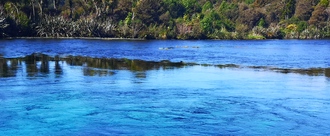
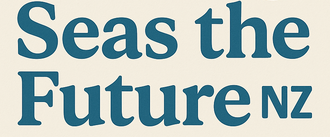
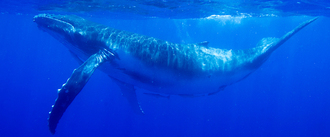.jpg)

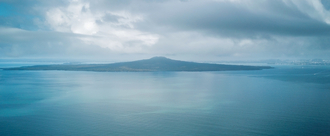.jpg)
